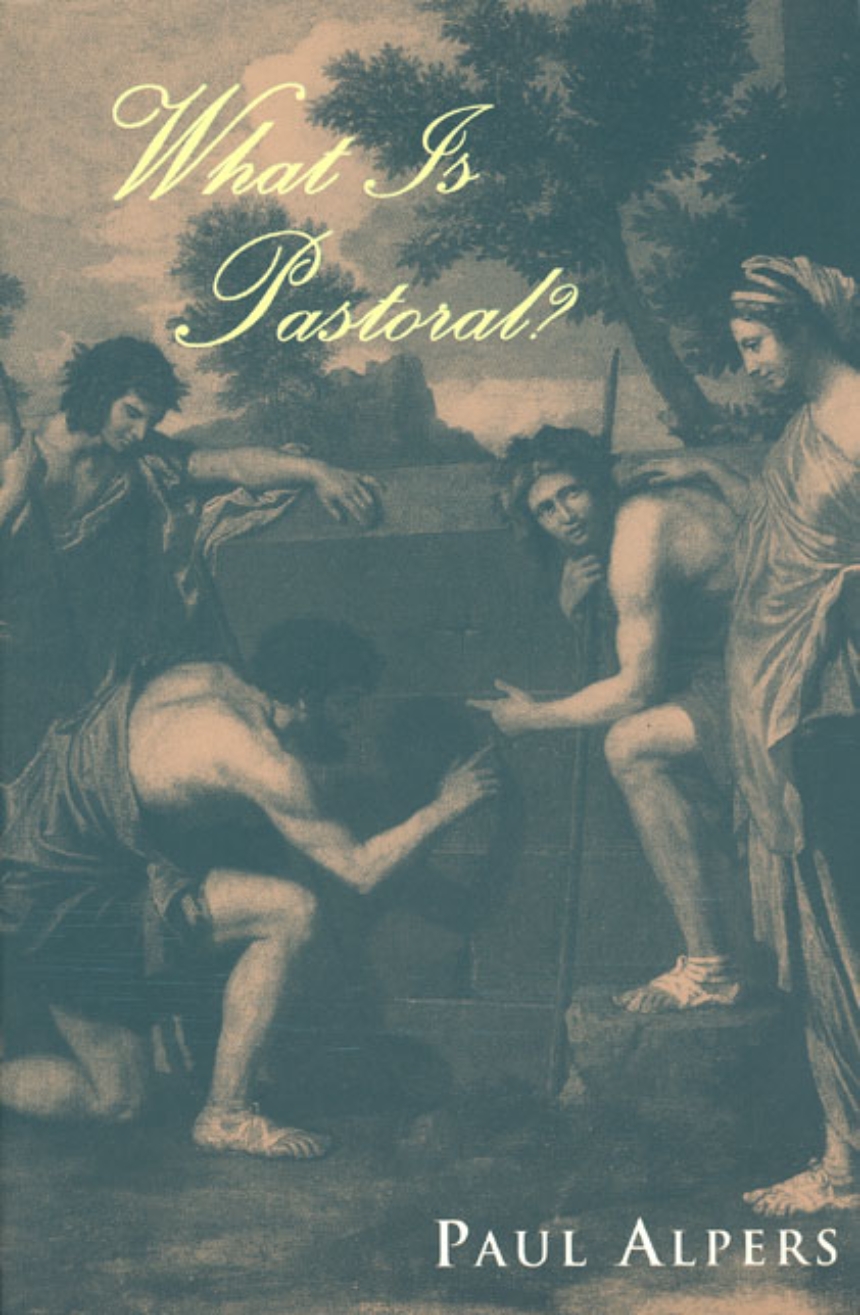What Is Pastoral?
One of the enduring traditions of Western literary history, pastoral is often mischaracterized as a catchall for literature about rural themes and nature in general. In What Is Pastoral?, distinguished literary historian Paul Alpers argues that pastoral is based upon a fundamental fiction—that the lives of shepherds or other socially humble figures represent the lives of human beings in general.
Ranging from Virgil’s Eclogues to Sarah Orne Jewett’s The Country of the Pointed Firs, from Shakespeare and Cervantes to Hardy and Frost, this work brings the story of the pastoral tradition, previously limited to classical and Renaissance literature, into the twentieth century. Pastoral reemerges in this account not as a vehicle of nostalgia for some Golden Age, nor of escape to idyllic landscapes, but as a mode bearing witness to the possibilities and problems of human community and shared experience in the real world.
A rich and engrossing book, What Is Pastoral? will soon take its place as the definitive study of pastoral literature.
"Alpers succeeds brilliantly. . . . [He] offers . . . a wealth of new insight into the origins, development, and flowering of the pastoral."—Ann-Maria Contarino, Renaissance Quarterly
Ranging from Virgil’s Eclogues to Sarah Orne Jewett’s The Country of the Pointed Firs, from Shakespeare and Cervantes to Hardy and Frost, this work brings the story of the pastoral tradition, previously limited to classical and Renaissance literature, into the twentieth century. Pastoral reemerges in this account not as a vehicle of nostalgia for some Golden Age, nor of escape to idyllic landscapes, but as a mode bearing witness to the possibilities and problems of human community and shared experience in the real world.
A rich and engrossing book, What Is Pastoral? will soon take its place as the definitive study of pastoral literature.
"Alpers succeeds brilliantly. . . . [He] offers . . . a wealth of new insight into the origins, development, and flowering of the pastoral."—Ann-Maria Contarino, Renaissance Quarterly
444 pages | 6 x 9 | © 1996
Literature and Literary Criticism: Classical Languages, General Criticism and Critical Theory
Table of Contents
Preface
Acknowledgments
Frequently Cited Works
Prologue
1: Representative Anecdotes and Ideas of Pastoral
2: Mode and Genre
3: Pastoral Convention
4: Representative Shepherds
5: Pastoral Speakers
6: Pastoral Lyrics and Their Speakers
7: Modern Pastoral Lyricism
8: Pastoral Narration
9: Pastoral Novels
Index
Acknowledgments
Frequently Cited Works
Prologue
1: Representative Anecdotes and Ideas of Pastoral
2: Mode and Genre
3: Pastoral Convention
4: Representative Shepherds
5: Pastoral Speakers
6: Pastoral Lyrics and Their Speakers
7: Modern Pastoral Lyricism
8: Pastoral Narration
9: Pastoral Novels
Index
Awards
Phi Beta Kappa: Christian Gauss Award
Won
American Comparative Literature Association: Harry Levin Prize
Won
